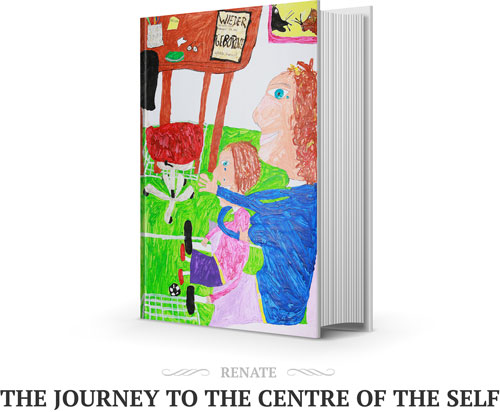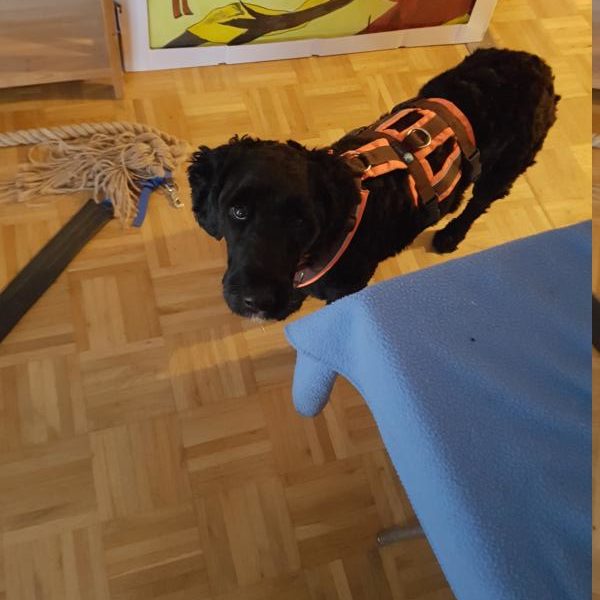I have barely had any patience in my life. HIGHER, QUICKER, FURTHER- these were the goals that I have had for years. Even though I knew that this “life under constant inner pressure” wasn’t good for my health, I simply did not know how to do things more slowly. It was as if I there was a tiny man sitting on my shoulder who kept shouting: “Off you go, you don’t have time, be quick!” or if I had just fulfilled a task: “Hey, don’t relax, there is so much more to do.” Until now this phenomenon gave me the feeling that I couldn’t rest until I had fulfilled all daily chores and written down the new tasks that came to my mind.” This way I never really took my time to enjoy what I had already accomplished. I took this energy to do yet more projects. As there were nearly no pauses in between my “task-accomplishing” days I had the feeling, that tasks were never ending and that against all odds I wasn’t getting anywhere. This however, made me yet become more impatient with myself and with life in general. Until one day-the day when I met Marie-I began to question my attitude. It was a grey and misty November morning when I came to visit my father in the home for elderly people. By my side was Kalle, my service dog. The atmosphere in the home was kind of numb and it felt somehow empty, because there was neither talking nor laughter to be heard from the old people. I was glad when Kalle somewhat changed this stillness, because some grandmas and grandpas talked about him and how he reminded them of dogs they had had in their earlier years. Some wanted to stroke him others just stood there watching him in surprise. This gave me an idea of how secluded these elderly people lived. Still I was impatiently waiting for the lift, to get on with my visit and my tasks. When the doors of the lift opened there was a tiny woman with long white hair. She looked at me and said: “You are a beautiful woman.” I smiled. When another man, obviously a visitor, entered she said: “You are a beautiful man.” I realised that she used this compliment kind of like greeting someone, to get into contact. I asked her what she had in her trolley. “This is a picture of my husband”. I looked at the black-and-white fotograph of a man in his thirties. On the trolley there was a sticker with name and address of the elderly woman. I read that her first name was Marie (name changed). Next to the foto in her trolley there was an album full of fotographs. It looked like it was nearly 100 years old and its pages were torn from the constant use of memories. Other than that there was a mirror and a brush. I looked at Marie who was talking to the visitor about the many years he came here to see his wife. Looking at the trolley it suddenly struck me that in a few years time I could be like Marie. I understood at this moment that there was no real frontier that would save me from getting old and forgetting each day more of who I was and where I was. Even though I chose to believe that I could “enjoy life later” I began to comprehend how fragile life was. And suddenly my inner pressure together with the tiny man on my shoulder grew silent. When I got off the lift I saw Marie walking slowly along the long corridor, carrying her life in the small trolley she kept pushing in front of her. Knocking at my father’s door I felt that Kalle wanted to get away. For him as for me the visits here took a lot of energy. My father was enthusiastic to see me. It was painful for me to see how many of the things he used to do he didn’t know how to do them any more. I tried to talk about the past-the only time he seemed comfortable talking about. We even went for his first walk together which made the atmosphere of the home less misty. My father wanted to go home. He “invited” me for a drink in the nearby pub. When we crossed a big street he speeded up his pace and started shouting at a lorry who wanted to go on driving. At the tavern the owner had already a put a glass of wine on the counter. My father on the other hand didn’t know if 5 Euro were enough for the wine and my coffee. The pub was a sad place to be: There was no real “food” to eat, not even a roll to buy. People just seemed to come in to drink, smoke and feel less lonely. My dog sensed that something was not quite right. He looked at me quizzically and I was relieved when we could finally leave. “I will come back later”, he shouted at the owner who nodded stoically. A part of me wanted to shout: “Dad why do you destroy your life?” but I kept silent. I remembered the better times where my father and I had taken walks in the woods and finally eaten in a restaurant nearby. Those times I understood were ultimately gone. Since that day I try to accept that I can’t change my father’s consume of alcohol. What I can change is to enjoy life when it is peaceful and to be more patient.
Renate Weber


